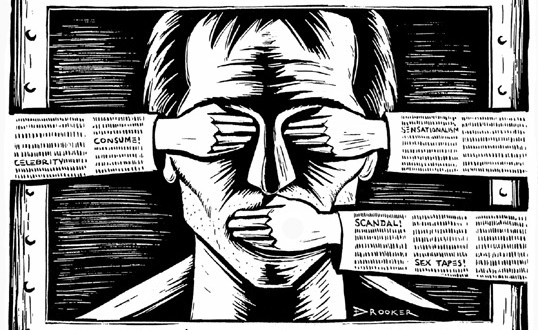The Great Firewall of China is known around the world as the strict security measures the Chinese government takes against content on the internet that does not favor the government’s viewpoints. The firewall is infamous because it has blocked access to various services such as Gmail, Facebook and Twitter in the past and the new policies of the government blocks VPNs (virtual private networks) used by certain websites. With that and the countless measures against freedom of speech, the Great Firewall of China has made private businessmen and smaller companies lose profits because of the inability to connect with foreign business partners and enterprises.
The latest evolution in the Great Firewall of China story concerns accounts found on the internet, created by users and companies alike. Much like Facebook’s new “real names policy”, Chinese authorities will be enacting new policy over users of the internet requiring them to use their real names on all accounts they create on the internet, to promote “transparency”. My opinion is that this measures is being taken so that the Chinese government can more easily monitor internet users and get to them if they violate any policies.
That means that if user “bittersweet” talks about how the new government policy has negatively impacted his company “bittersweet candy” because they can’t get in touch with foreign investors, the Chinese government will flag the user as someone who is spreading propaganda. If user “bittersweet” has a good system at home and uses a proxy, it would be harder for the government to identify the person behind the user. With the real names policy, the government can easily determine that the user formerly known as “bittersweet” is actually Yi Hon (hopefully, that’s a very fictive name, my apologies if it isn’t) and he lives at Bittersweet Lane 45.
The Great Firewall of China will put the new policy to use starting Sunday, March 1st. Services on the internet will now be required to form special teams within their company that will handle matters involving the real names policy, as well as content management. Major companies in China, such as Alibaba, Tencent Holdings, Baidu, Weibo and more have already taken to actually delete accounts that didn’t comply with the policy that hasn’t even been officially enacted yet, according to Reuters. They have removed more than 60,000 accounts total, which weren’t in compliance with the new policy. Not only is that odd, but it is actually in violation, yet again, of freedom of speech.
Emily Smith is not my real name (you probably know that already). You guys probably couldn’t even pronounce my real name. My real name doesn’t represent me as I am when writing on Load the Game or any other website. Emily Smith is who I am in the online world and it totally reflects the “real me”. I choose not to use my real name for two reasons: many won’t be able to pronounce it and will associate it with negative things; in journalism, it’s a good shield against threats. The Great Firewall of China and implicitly, the Chinese government does not seem to understand the importance of basic human rights and privacy, and it doesn’t intend to take into account what internet users want. It’s a good thing that we have net neutrality now. The new policy the Chinese government is enacting is just proof of how oppressive the regime really is towards the internet. I am rather amazed that Chinese citizens don’t revolt against such drastic measures, but I do understand their motivation behind their resilience to act.
Anyone who speaks against the Chinese government and the Great Firewall of China is going to be targeted by the government and will face harsh sentencing, or worse. Even though we think of propaganda differently, the Chinese government is on the opposite side, considering freedom of speech propaganda, essentially. What do you think this new policy will lead to? I was amazed by the fact that Alibaba, Weibo and Baidu have so rapidly complied with the new rules, were you? What about foreign companies like Google? Will they comply and enforce the real names policy?
 Load the Game Video Games, Reviews, Game News, Game Reviews & Game Video Trailers
Load the Game Video Games, Reviews, Game News, Game Reviews & Game Video Trailers


